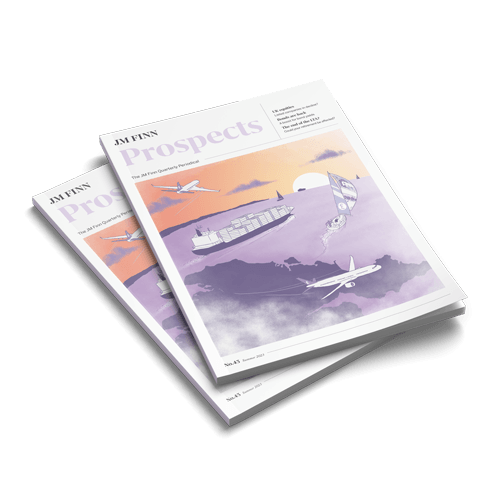The Chancellor of the Exchequer delivered the Spring Budget on 15th March, and one of the key announcements was the unexpected changes to pension tax allowances. The changes aim to encourage workers over the age of 50 to extend their working lives and ensure high skilled individuals, such as NHS clinicians, are not disincentivised from remaining in the workforce. The new Finance Act 2023 is currently being updated and is expected to be finalised this summer. The key changes are set out below. If these changes are likely to impact you, we recommend seeking expert financial advice on your pension options and related tax implications from a qualified professional.
The Lifetime Allowance
The lifetime allowance (LTA) is the maximum amount of savings an individual can make in a registered pension scheme without incurring a tax charge. The current LTA is £1,073,100.
For those who withdrew their pension before 6th April 2023, the excess was taxed either at 55% where taken as a lump sum, or at 25% where taken as a pension. Most individuals with an excess above the allowance were subject to the standard LTA. However, when the LTA was introduced, and each time it has been reduced, protections have been offered to safeguard individuals who had already built up significant pension savings on the expectation of a certain level of LTA.
The LTA tax charges were removed from 6th April 2023 and the LTA will be abolished altogether from the 2024/25 tax year, if it is successfully ratified in legislation. These changes will generally affect those considered ‘higher earners’; people who have built up pension savings of more than £1,073,100 across all of their pensions, or those who expect their pension savings to exceed this amount.
In the 2023/24 tax year, LTA checks still need to be done, but if the allowance is exceeded when benefits are taken during the person’s lifetime there won’t be an LTA charge. Any excess is simply taxed as income in the normal way.
Please note however that the maximum Pension Commencement Lump Sum has been set and frozen at £268,275 (i.e. 25% of the current LTA), unless the individual has protected tax-free cash or pension protection as part of a specific scheme.
As of 6th April 2023, individuals who held pension protection before 15th March 2023 are now able to accrue new pension benefits, join new arrangements or transfer their savings, without losing their entitlement to their higher protected LTA amount for the purposes of the 25% tax-free lump sum.
Pension savers have seen their pension benefits tested against the LTA since it was introduced in April 2006 and the removal should make it less complicated for those retiring after 6th April 2023.
Annual Allowance
In order to receive tax relief on their contributions, an individual is capped at the lower of their earnings or the annual allowance. This annual allowance limit has increased from £40,000 per annum to £60,000 per annum from 6th April 2023. This is certainly a welcome change for pension savers, especially at a time when we have seen tax thresholds frozen or in some cases, reduced.
Where pension contributions in a tax year exceed the annual allowance, the excess is subject to a charge at the individual’s marginal rate of income tax.
Tapered Annual Allowance
The tapered Annual Allowance is £10,000, which has increased from £4,000 since 6th April 2023.
The tapered Annual Allowance applies when an individual’s threshold income is above £200,000 per annum and an individual’s adjusted income is above £260,000 per annum.
The available Annual Allowance is tapered by £1 for every £2 adjusted income exceeds £260,000 per annum. In simple terms, threshold income is all taxable income and adjusted income is all taxable income plus employer pension contributions.
The maximum reduction is £50,000. So, anyone with an income of £360,000 or more has an annual allowance of £10,000. People with high income caught by the restriction may have to reduce the contributions paid by them and/or their employer, or an annual allowance charge will apply.
Money Purchase Annual Allowance
When an individual accesses their pension through a drawdown arrangement or by cashing in their pension, the maximum amount they can contribute to their pension is reduced to the Money Purchase Annual Allowance (MPAA). From 6th April 2023, the MPAA has been increased from £4,000 to £10,000. This will make it easier for individuals who wish to continue working and saving once they have taken money from their pension savings, if they want to.
Summary
The pension changes will be welcomed by high earners who wish to contribute more into their pension and to individuals who already have pension funds valued above the £1,073,100 LTA – specifically those without pension protection. It will take significant work to amend the current pension legislation and there may be further technical changes once the LTA is completely abolished in April 2024. We recommend speaking to a qualified financial adviser regarding your pension arrangements. Our expert wealth planners at JM Finn are able to provide advice on how to access your pension benefits in the most tax-efficient way. If you would like further information, please contact your investment manager.
The information provided in this article is of a general nature and should not be considered a substitute for specific advice provided by a qualified professional with regard to your own circumstances. Tax rates and allowances are subject to change by the HMRC. Any figures quoted are accurate at the time of publication.
Illustration by Adam Mallett






